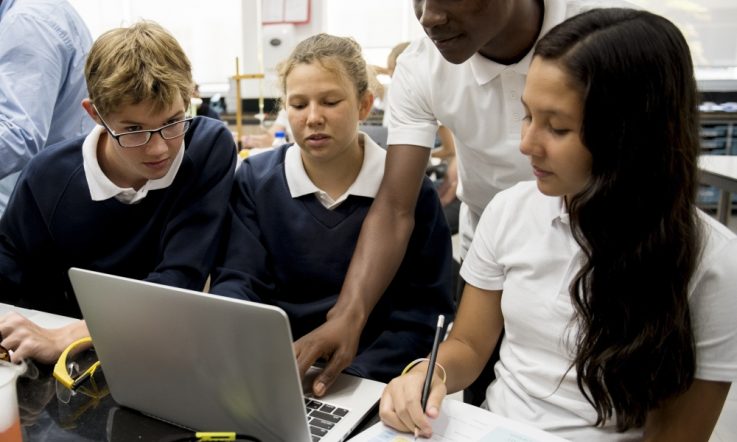First-generation Australians and foreign-born migrants have a greater sense of belonging at school than their Australian-born counterparts, according to a new report published by the Australian Council for Educational Research (ACER).
PISA Australia in Focus Number 1: Sense of belonging at school takes a detailed look at the non-cognitive results from the most recent Programme for International Student Assessment (PISA) study in 2015, where Australian 15-year-olds were asked how they feel about school.
Students were asked to rate their level of agreement on a scale of strongly agree; agree; disagree; and strongly agree to several statements. These included: I feel like an outsider (or left out of things) at school; I make friends easily at school; I feel like I belong at school; I feel awkward and out of place in my school; other students seem to like me; and, I feel lonely at school.
The report cites research that suggests sense of belonging has been shown to be an important schooling outcome in its own right and, for some students, is indicative of educational success and long-term health and wellbeing (OECD, 2004).
It also notes that school is a central part of a student's life, and students who feel part of, and accepted by their school community are not only more likely to participate in school activities, both academically and non-academically, but will be actively engaged in these activities (OECD, 2017).
How Australian students compare to their OECD peers
This research shows that more Australian students than their OECD peers feel like they don't belong at school.
‘Australian students feel a lower sense of belonging than their peers in the 35 OECD countries, and the overall sense of belonging has declined significantly since our first PISA results in 2003,' ACER Deputy CEO (Research) Dr Sue Thomson says.
Students in Spain had the highest levels of sense of belonging, followed by students in Austria and Albania. Meanwhile, students in Turkey had the lowest level of sense of belonging, followed by students in Macao (China) and the Dominican Republic.
Students in high performing countries did not necessarily report a greater sense of belonging. For example, Macao (China), Hong Kong (China), Singapore, Canada, Estonia and Japan all had a mean score that was lower than the OECD average.
While Australian students generally felt lower levels of belonging at school than students in the OECD, they did report feeling that other students liked them at much higher levels (88 per cent) than the OECD average of 82 per cent.
Australian students' sense of belonging
Australian results show that male students reported a significantly greater sense of belonging at school than female students. Non-Indigenous students reported a significantly greater sense of belonging than Indigenous students. And students from the highest socioeconomic quartile reported a significantly greater sense of belonging than students in the other three quartiles.
Lastly, Australian-born students (students born in Australia with both parents born in Australia) reported a significantly lower sense of belonging than first-generation and foreign-born students.
‘Research shows that a sense of belonging is an important schooling outcome,' Thomson says. ‘For some students it really makes a difference to their educational success and long-term health and wellbeing.
‘Although these results don't tell us why some students have a lower sense of belonging, they do highlight where the social issues are – among students who are Indigenous, female, Australian-born, from low SES backgrounds and country areas. Schools could focus on these students and consider how to support those who may be at risk of becoming disengaged.'
Changes in sense of belonging over time
Between PISA 2003 and 2015, there was a decrease of between 8 and 16 percentage points reported on the sense of belonging statements put to Australian students.
For example, in 2003, 91 per cent of Australian students agreed they make friends easily at school; by 2015 this had decreased to 79 per cent. In 2003, 88 per cent of Australian students agreed that they feel like they belong at school; by 2015, this had decreased to 72 per cent.
‘In Australia, over this 12-year period, students' sense of belonging has declined significantly,' the report says.
References
De Bortoli, L. (2018). PISA Australia in Focus Number 1: Sense of belonging at school. Retrieved June 6, 2018, from https://research.acer.edu.au/ozpisa/30
Organisation for Economic Co-operation and Development (OECD). (2017). PISA 2015 results (Volume III): Students' well-Being. Paris: OECD.
Organisation for Economic Co-operation and Development (OECD). (2004). Learning for tomorrow's world – Final results from PISA 2003. Paris: Author.
Read the full report, PISA Australia in Focus Number 1: Sense of belonging at school, published by ACER, at https://research.acer.edu.au/ozpisa/30



